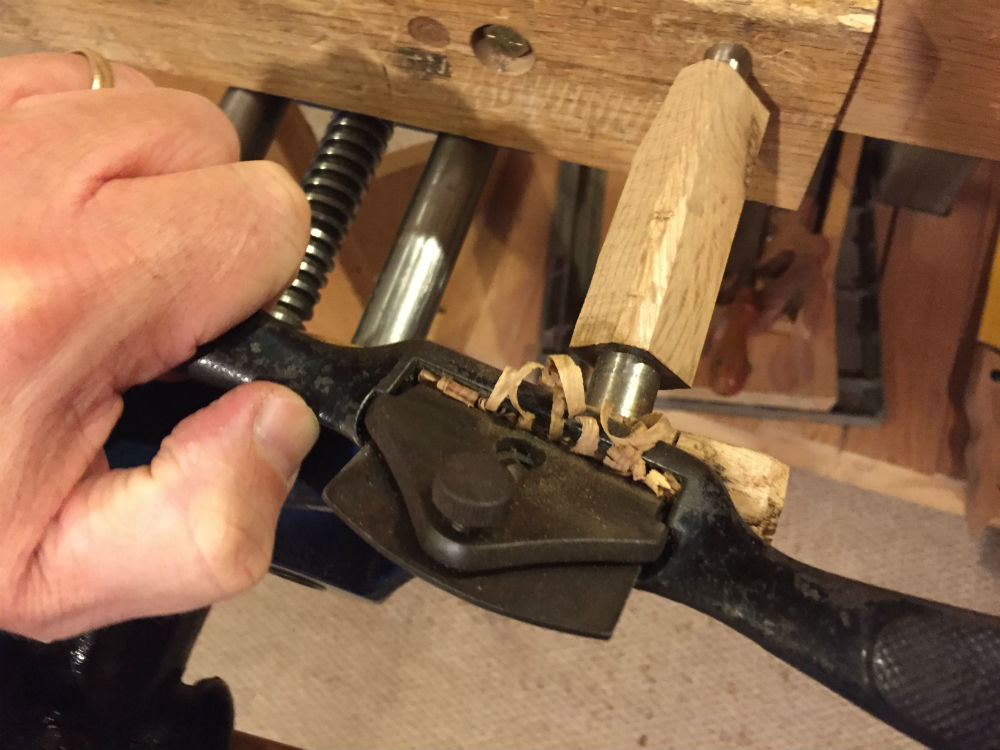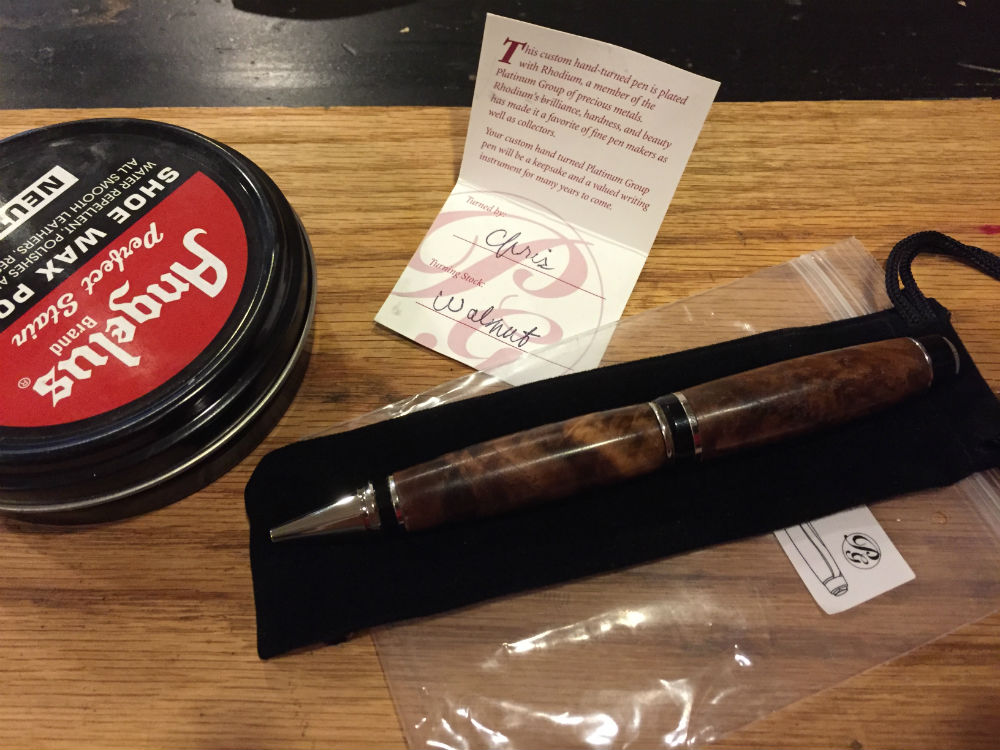07-19-2017, 02:56 PM
I wanted to get ready for about a half-dozen pens coming up. I use all sorts of odd stocks, so preparing a few at a time helps save a little time.
I realized I could use a Spokeshave to prepare better for the lathe, save on dust, etc.... Rough rounding is facilitated by putting the blank in its bushings inside the vise soft jaws:


Here I've laid in a few packages for later:


Here is one of the walnut ones; I couldn't wait any longer! The finish is Doctor's Woodshop Pens Plus. I'm not a French-polisher, but I think there are elements of the same action there.... shellac is friction-set, and walnut oil serves as a lubricant during application.


Happy woodworking!
Chris
I realized I could use a Spokeshave to prepare better for the lathe, save on dust, etc.... Rough rounding is facilitated by putting the blank in its bushings inside the vise soft jaws:

Here I've laid in a few packages for later:

Here is one of the walnut ones; I couldn't wait any longer! The finish is Doctor's Woodshop Pens Plus. I'm not a French-polisher, but I think there are elements of the same action there.... shellac is friction-set, and walnut oil serves as a lubricant during application.

Happy woodworking!
Chris
Chris






